Intro
Identify ectopic pregnancy symptoms, including abdominal pain, vaginal bleeding, and pelvic tenderness, to prompt medical attention and prevent complications like fallopian tube rupture, infertility, and miscarriage.
Ectopic pregnancy is a serious and potentially life-threatening condition that occurs when a fertilized egg implants outside the uterus, typically in the fallopian tube. This condition is a leading cause of pregnancy-related deaths in the first trimester, and it is essential to recognize the symptoms to seek medical attention promptly. Every year, approximately 1 in 50 pregnancies in the United States is ectopic, resulting in thousands of hospitalizations and surgeries. The importance of understanding ectopic pregnancy symptoms cannot be overstated, as early detection and treatment can significantly improve outcomes for both the mother and the fetus.
The symptoms of an ectopic pregnancy can be subtle and may resemble those of a normal pregnancy or other conditions, making diagnosis challenging. Women who experience any unusual symptoms during early pregnancy should consult their healthcare provider immediately. The key to successful treatment is early recognition, and this requires a thorough understanding of the signs and symptoms associated with ectopic pregnancy. By being aware of these symptoms, women can take proactive steps to protect their health and the health of their unborn child.
Ectopic pregnancy symptoms can vary widely from woman to woman, but common signs include abdominal pain, vaginal bleeding, and shoulder pain. These symptoms can range from mild to severe and may develop rapidly over a few hours or days. In some cases, women may not experience any noticeable symptoms until the ectopic pregnancy has ruptured, which is a medical emergency. The importance of prompt medical attention cannot be overstated, as delayed treatment can lead to severe complications, including hemorrhage, infection, and even death. By recognizing the symptoms of ectopic pregnancy and seeking medical care without delay, women can reduce their risk of complications and improve their chances of a successful outcome.
Ectopic Pregnancy Causes and Risk Factors
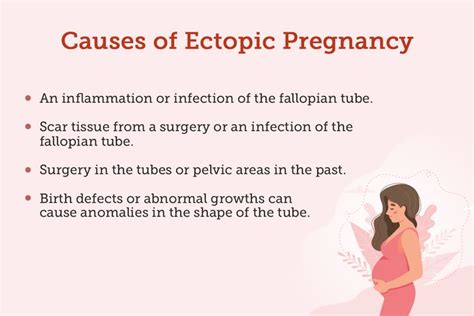
Common Causes of Ectopic Pregnancy
Some of the most common causes of ectopic pregnancy include: * Pelvic inflammatory disease (PID) * Endometriosis * Previous surgery, such as tubal ligation or cesarean section * In vitro fertilization (IVF) * Smoking * History of infertility * Previous ectopic pregnancy * Abnormalities in the fallopian tube or uterusEctopic Pregnancy Symptoms and Signs
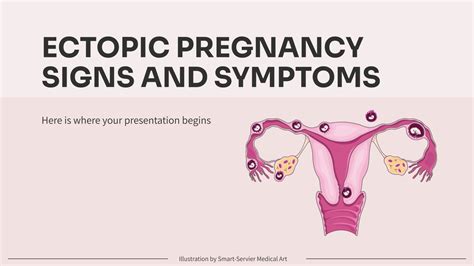
Distinguishing Ectopic Pregnancy from Normal Pregnancy Symptoms
While some symptoms of ectopic pregnancy can resemble those of a normal pregnancy, there are key differences. Women who experience any of the following symptoms should seek medical attention immediately: * Severe abdominal pain that worsens over time * Heavy vaginal bleeding or clotting * Shoulder pain or discomfort * Dizziness or lightheadedness * Fainting or near-faintingEctopic Pregnancy Diagnosis and Treatment
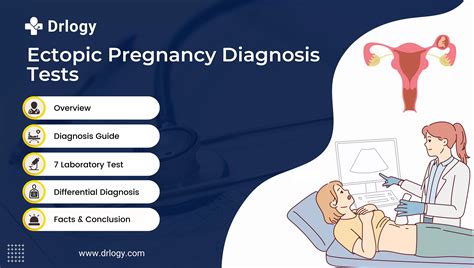
Treatment for ectopic pregnancy usually involves surgery to remove the ectopic embryo and repair any damage to the fallopian tube. In some cases, medication may be used to terminate the pregnancy and allow the body to absorb the embryo. Women who experience an ectopic pregnancy may need to undergo additional testing and monitoring to ensure their health and fertility.
Types of Ectopic Pregnancy Treatment
The type of treatment used for ectopic pregnancy depends on the severity of the condition and the individual woman's needs. Common treatment options include: * Surgical removal of the ectopic embryo and repair of the fallopian tube * Medication to terminate the pregnancy and allow the body to absorb the embryo * Expectant management, which involves monitoring the woman's condition and waiting for the embryo to be absorbed naturallyPreventing Ectopic Pregnancy
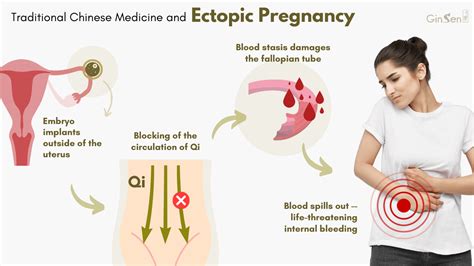
Lifestyle Changes to Reduce Ectopic Pregnancy Risk
Women who are at increased risk for ectopic pregnancy can make lifestyle changes to reduce their risk. These changes include: * Quitting smoking * Avoiding excessive alcohol consumption * Maintaining a healthy diet and exercise routine * Managing stress and anxiety * Getting enough sleep and restEctopic Pregnancy Complications and Risks
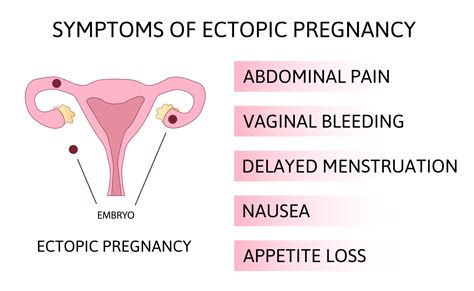
Long-Term Effects of Ectopic Pregnancy
Women who experience an ectopic pregnancy may be at increased risk for long-term effects, including: * Infertility and reduced fertility * Emotional and psychological trauma * Increased risk of future ectopic pregnancies * Chronic pain and pelvic discomfort * Adverse effects on mental health and well-beingSupport and Resources for Ectopic Pregnancy
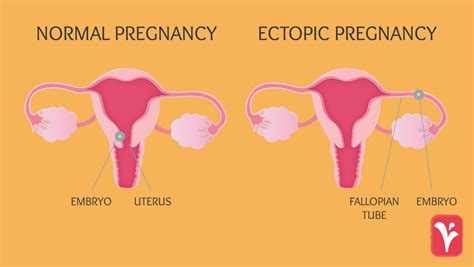
Online Resources for Ectopic Pregnancy
Women who are looking for online resources and support for ectopic pregnancy can visit the following websites: * American College of Obstetricians and Gynecologists (ACOG) * National Institute of Child Health and Human Development (NICHD) * Mayo Clinic * WebMD * Ectopic Pregnancy FoundationWhat are the symptoms of ectopic pregnancy?
+The symptoms of ectopic pregnancy can include abdominal pain, vaginal bleeding, shoulder pain, nausea and vomiting, fatigue, dizziness or lightheadedness, and abnormal vaginal discharge.
How is ectopic pregnancy diagnosed?
+Ectopic pregnancy is typically diagnosed using a combination of physical examination, medical history, and diagnostic tests, including pelvic exam, ultrasound, blood tests, and laparoscopy.
What are the treatment options for ectopic pregnancy?
+Treatment options for ectopic pregnancy include surgical removal of the ectopic embryo and repair of the fallopian tube, medication to terminate the pregnancy, and expectant management.
Can ectopic pregnancy be prevented?
+While it is not possible to completely prevent ectopic pregnancy, women can take steps to reduce their risk, including practicing safe sex, avoiding smoking and secondhand smoke, maintaining a healthy weight, and getting regular prenatal care during pregnancy.
What are the long-term effects of ectopic pregnancy?
+Women who experience an ectopic pregnancy may be at increased risk for long-term effects, including infertility and reduced fertility, emotional and psychological trauma, increased risk of future ectopic pregnancies, chronic pain and pelvic discomfort, and adverse effects on mental health and well-being.
As we conclude our discussion on ectopic pregnancy symptoms, it is essential to remember that early recognition and treatment are critical to preventing complications and improving outcomes. By being aware of the symptoms and risk factors associated with ectopic pregnancy, women can take proactive steps to protect their health and the health of their unborn child. If you have experienced an ectopic pregnancy or are concerned about your risk, we encourage you to share your story, ask questions, or seek support from healthcare professionals and online resources. Together, we can work to raise awareness and promote education about ectopic pregnancy, ultimately reducing the risks and improving the outcomes for women worldwide.
